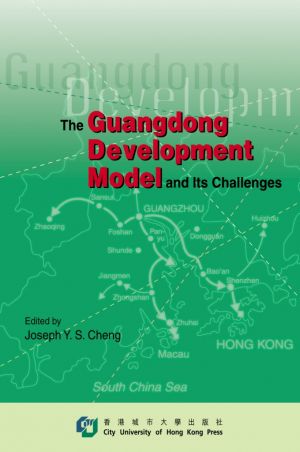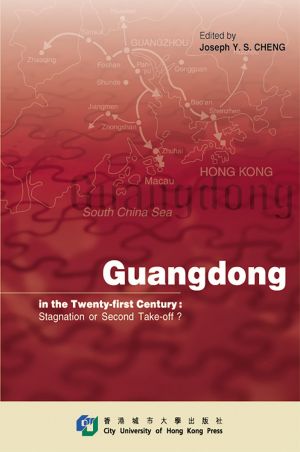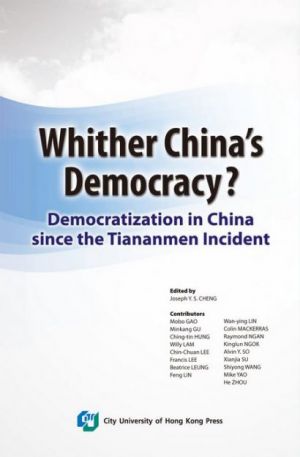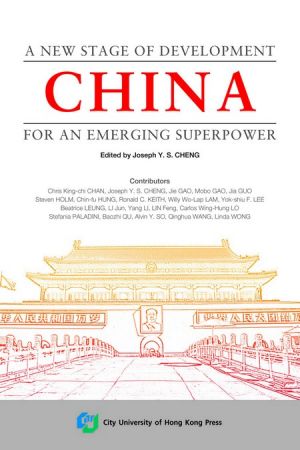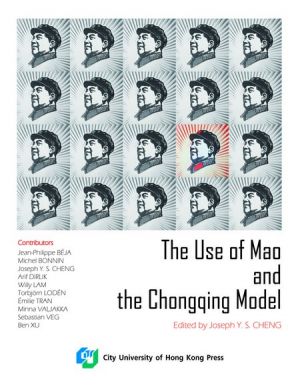The new leadership team under Hu Jintao and Wen Jiabao began to consolidate power and make its mark on China’s policy programmes since the autumn of 2002. This has become more prominent after the retirement of Jiang Zemin from the chairmanship of the Party Central Military Commission in 2004. The Chen Liangyu case in late 2006 seems to have confirmed that Hu and Wen will have the decisive say in shaping the leadership lineup to be announced in the Seventeenth Party Congress in the autumn of 2007. While there is a well-established consensus on the challenges and problems facing China, the priorities and the policy solutions defined by the new leadership nonetheless have their distinct features. This volume tries to analyze the new leadership’s perceptions of the challenges facing it, how it defines its priorities, builds up political support for its policy programmes and overcomes the resistance of vested interests. Attempts have also been made to evaluate its achievements so far.
China’s economic development has certainly been impressive in recent years. But the leadership is aware of the challenges and sharpening contradictions involved. At this stage, the emphases are on sustainable development and improvement in efficiency. It understands that the gaps among regions, between the coastal and interior provinces, between the urban and rural sectors, and between the rich and poor have been widening, hence its appeal for the establishment of a harmonious society. The state is ready to allocate more resources to help the under-privileged; and given its much increased revenues and foreign exchange reserves, it can afford to improve the quality and coverage of the social security system. But the leadership has no plan for democratic reforms, and will not accept any erosion of the Party’s monopoly of political power. In fact, it has stepped up pressure on the mass media, the non-governmental organizations, and the dissidents.
This edited volume involves a team of China experts contributing chapters on their respective areas of expertise. It is hoped that it will serve as a good starting-point for informed discussions, and therefore will be an attractive reference book for China courses at the undergraduate level in local and Western universities. It also aims to serve as a useful and convenient reference for the general public such as bankers, business executives and journalists interested in China.
Finally, I would like to take this opportunity to thank the staff of the City University of Hong Kong Press for their hard work and dedication throughout the publication process, especially Mr. Patrick Kwong, the director, who has offered much valuable advice and assistance. Thanks are also due to all the authors for their support and co-operation, especially in meeting the numerous deadlines set within a tight editorial schedule. Last but not least, this book would have been impossible without the valuable contributions from my colleagues at the Contemporary China Research Project, City University of Hong Kong.
Joseph Y.S. Cheng
January 2007
Challenges and Policy Programmes of China’s New Leadership
HKD238.00
In stock
The new leadership team under Hu Jintao and Wen Jiabao began to consolidate power and make its mark on China’s policy programmes since the autumn of 2002. While there is a well-established consensus on the challenges and problems facing China, the priorities and the policy solutions defined by the new leadership nonetheless have their distinct features.
This volume tries to analyze the new leadership’s perceptions of the challenges facing it, how it defines its priorities, builds up political support for its policy programmes and overcomes the resistance of vested interests. Attempts will also be made to evaluate its achievements so far.
This edited volume involves a team of China experts contributing chapters on their respective areas of expertise. It is hoped that it will serve as an attractive reference book for China courses at the undergraduate level in local and Western universities. It also aims to serve as a useful and convenient reference for the general public such as bankers, business executives and journalists interested in China.
Contributors
Jean-Philippe BÉJA, David CHAN, Gerald CHAN, Lai-Ha CHAN, Sylvia CHAN,
Joseph Y. S. CHEUNG, Yingjie GUO, Guoping JIANG, Mobo KAO,
Charles C. L. KWONG, Willy Wo-Lap LAM, Pak K. LEE, Beatrice K. F. LEUNG,
Guoli LIU, Tit Wing LO, Colin MACKERRAS, Raymond NGAN, Alvin Y. SO,
Guiguo WANG, Marcus J. J. WANG, Linda WONG, Ray YEP, Ji YOU,
Graham YOUNG
ISBN
978-962-937-136-4
Pub. Date
Apr 1, 2007
Weight
0.95kg
Paperback
672 pages
Dimension
152 x
229 mm
Subjects


